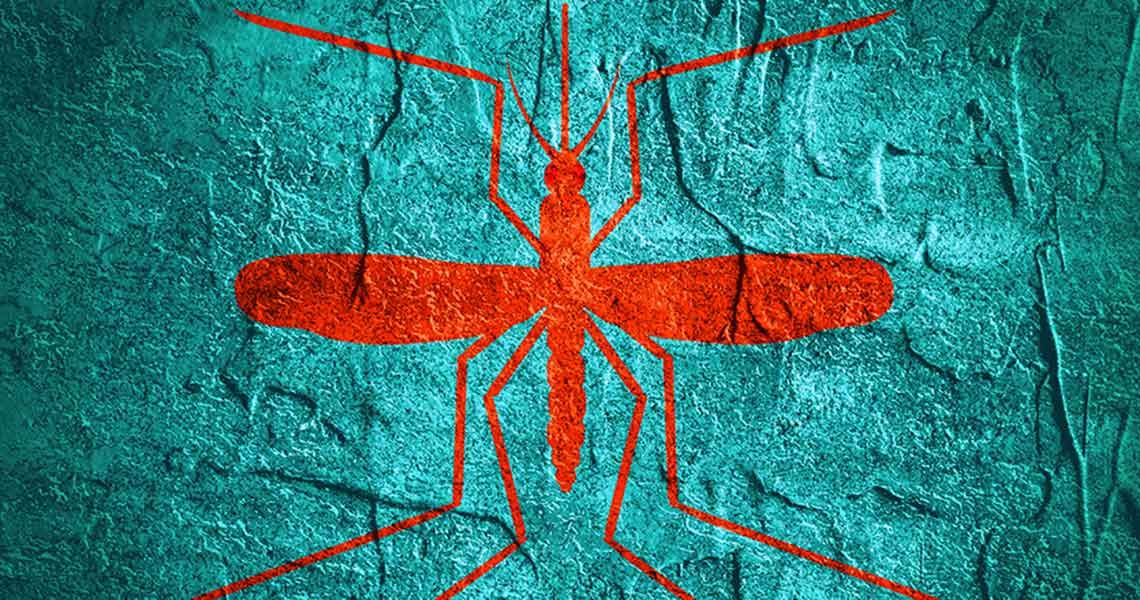The National Institutes of Health (NIH) is embarking on a phase II trial of a DNA-based Zika vaccine, with the goal of enrolling almost 2,500 participants at sites spread across countries where people have been infected by the virus. The trial at one of those sites, in Belo Horizonte, Brazil, is being run by faculty from the George Washington University (GW) School of Medicine and Health Sciences (SMHS) in collaboration with Brazilian investigators at the Hospital das Clínicas.
The two main objectives of the study, according to David Diemert, MD, associate professor of microbiology, immunology, and tropical medicine at SMHS, are to test the safety of the vaccine in the population and “to induce an immune response that would prevent an infection with the virus.”
The Zika virus is primarily transmitted to humans through the bite of infected Aedes aegypti mosquitoes, and can be transmitted from an infected pregnant woman to her baby during pregnancy, which can result in serious birth defects, including microcephaly, according to the National Institutes of Health.
Diemert said that while researchers are working on other types of Zika vaccines, the importance of a DNA-based vaccine is that it can be used in pregnant women who cannot receive live viral vaccines. The vaccine was created by scientists at the National Institute of Allergy and Infectious Diseases.
The initial goal in Belo Horizonte is to enroll 100 people in the trial. Each participant will get a series of three injections over the space of four months and be followed for two years. Participants will be on the younger side, ages 15 to 35, said Jeffrey Bethony, PhD, professor of microbiology, immunology, and tropical medicine at SMHS, who currently is on site in Brazil.
The volunteers will be required to participate in frequent specimen collections of urine and blood to test for the virus. Bethony said the research team will educate participants about potential symptoms of infection so they know to come to the site for assessment if they experience a fever or other issues.
The other sites, which are located in the United States, Peru, Ecuador, Puerto Rico, Costa Rica, Panama, Columbia, and Mexico, will be in contact over the course of the study to share information and their experiences, said Diemert. The samples collected from participants, however, will be sent to a central repository in the U.S., and once there will be analyzed.
Currently, Diemert said, it’s too early to know what the Zika transmission season in Brazil will be like this year. “You don’t know what’s going to happen this year, and you don’t know where it’s going to pop up,” Bethony added. However, thanks to the trial sites, “wherever there is a Zika outbreak, the [NIH] will divert more resources there.”
Diemert said with the Zika vaccine trial being a high-priority for the NIH, GW is honored to be part of the effort.
This isn’t the only effort surrounding Zika that the Office of International Medicine Programs (IMP) and the Department of Microbiology, Immunology, and Tropical Medicine have been involved in. In November 2016, the two co-sponsored a two-day scientific research summit in Brazil with the Instituto Butantan and Universidade de São Paulo focused on the virus.
This summit, spearheaded by Douglas Nixon, M.D., Ph.D., chair of the Department of Microbiology, Immunology, and Tropical Medicine, leveraged existing relationships with institutions in Brazil and the expertise of GW faculty to contribute to the dialogue about the Zika virus.
Scientific summits like the one focused on the Zika virus are an important part of IMP’s goals to facilitate international research and training partnerships. The events bring GW and international researchers together to address some of the world’s most devastating health issues.



